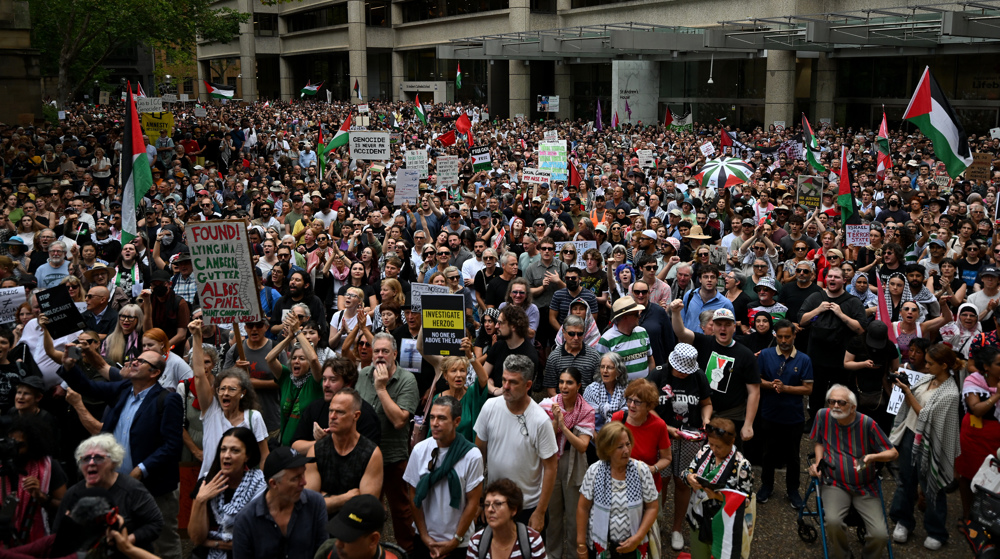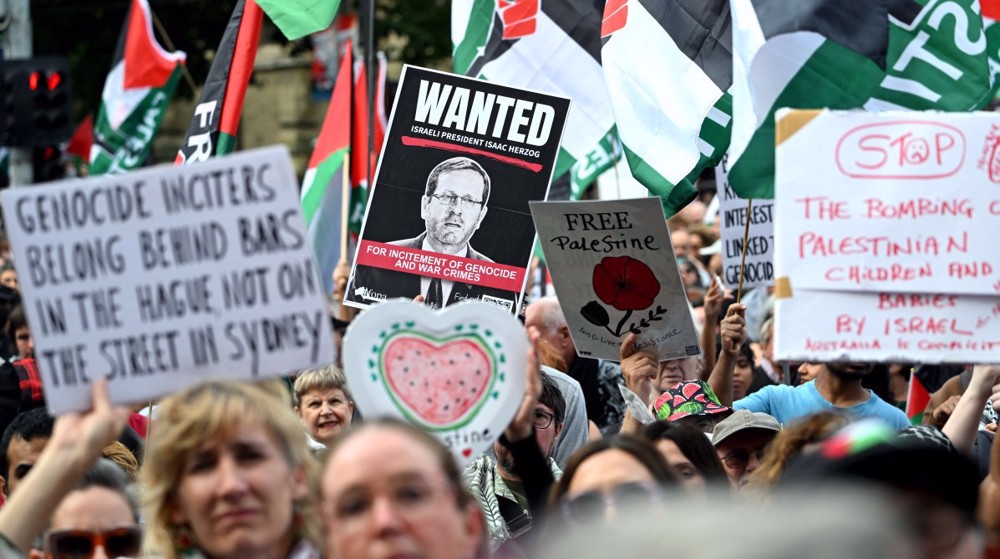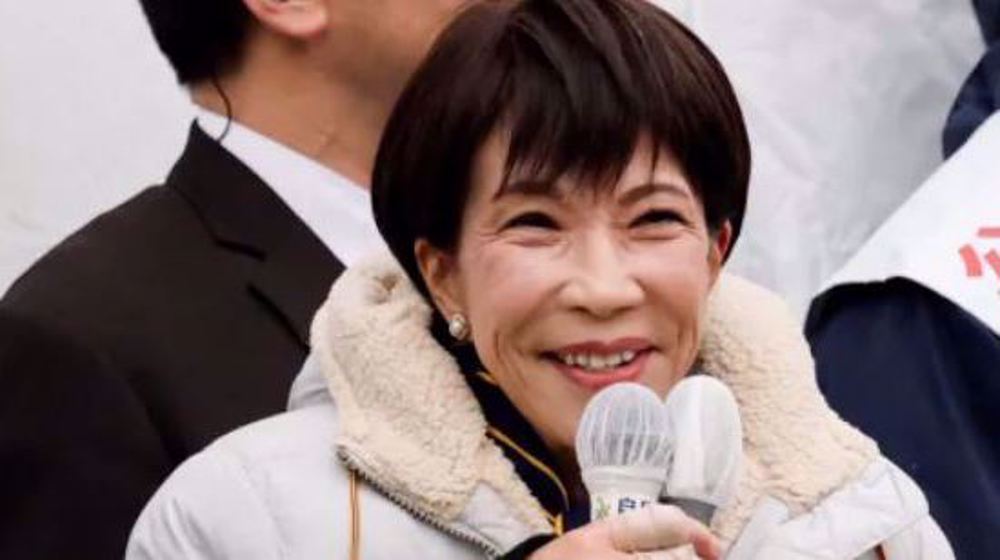Bangladesh, Myanmar to form ‘working group’ on refugee crisis
Bangladesh and Myanmar have agreed to set up a “joint working group” tasked with paving the way for the return of hundreds of thousands of Rohingya refugees, who have fled a brutal military crackdown in Myanmar’s Muslim-majority Rakhine State.
The agreement was reached on Monday following talks between Bangladeshi Foreign Minister Abul Hassan Mahmood and Myanmarese government official Kyaw Tint Swe in Dhaka.
“We are looking forward to a peaceful solution to the crisis,” said the top Bangladeshi diplomat following the talks.
“The talks were held in a friendly atmosphere and Myanmar has made a proposal to take back the Rohingya refugees,” the minister told reporters. “The two sides have agreed to a proposal to set up a joint working group to coordinate the repatriation process.”
He did not give further details about the process.
Over the past weeks, nearly 510,000 Rohingya Muslim refugees have crossed Myanmar’s borders into Bangladesh, where they are staying at refugee camps in the Cox’s Bazar border district.
The influx broke out on August 25, when the Myanmar military unleashed a fresh crackdown campaign against Muslim villages in the western state of Rakhine following a series of armed attacks on army and police checkpoints there.

The UN has described the exodus as the world’s fastest-developing refugee emergency, slamming Buddhist-majority Myanmar for engaging in ethnic cleansing against its Rohingya Muslim minority.
Prominent human rights groups have reported documented cases of systematic attacks by the Myanmar military and Buddhist extremists against Rakhine’s Muslim population, including random shootings, rape and arson attacks. The government, however, blames the Rohingya for the violence, claiming the Muslims set fire to their own homes.
Prior to the Monday talks in Dhaka, Bangladeshi Prime Minister Sheikh Hasina had demanded an immediate end to violence and safe passage in Myanmar for the refugees to return to their ancestral homes.
She had also called for a United Nations fact-finding mission to be allowed to go to Rakhine, and for Myanmar to implement recommendations on resolving the crisis in Rakhine drawn up by an advisory commission led by former UN secretary-general, Kofi Annan.
Until now, Myanmar has not allowed the UN fact-finding mission to visit Rakhine, and the proposed solutions to end the Rohingya’s plight recommended by Annan’s team have been dismissed by Myanmar’s leadership.
The advisory commission led by Annan had recommended that the government hold perpetrators of serious human rights violations against Muslims in Rakhine accountable and ensure the right to freedom of movement for all residents of Rakhine.
The team had also urged government investment in Rakhine infrastructure such as roads, electricity, water and internet access.
In Bangladesh, the uncontrollable flood of refugees has overwhelmed aid agencies.
Queues for food are continuing to swell in refugee camps in Cox’s Bazar, as more Rohingya Muslims fleeing violence in neighboring Myanmar make the border crossing.
The World Food Program appealed on Sunday for 75 million dollars in emergency aid over the next six months to help provide food for the refugees, while the United Nations has sought 200 million dollars from donors to help tackle their other needs.
The United Nations has warned of a humanitarian “nightmare” in the camps, where Rohingya refugees are suffering from a lack of food and clean water.
Health experts have also voiced alarm that conditions in the grossly deficient camps are ripe for disease outbreaks such as cholera.
Controlled tour of Rakhine
Myanmar has come under international criticism for barring aid groups, journalists and other outsiders from independently traveling to the region to see the situation there.
On Monday, they took foreign diplomats and United Nations representatives on a controlled tour in Rakhine.
Three groups of diplomats were taken to three different areas on Monday, said Ye Htut, district administrator of Maungdaw in Rakhine.
Local officials in Rakhine said Monday’s tour includes meetings with relatives of victims allegedly killed by Muslim militants during the violence against Mro and Daignets minority Hindu communities in Maungdaw township.
The diplomats were also taken to Anaut Pyin village of Rathedaung township, a community of Rohingya Muslims who have not fled, said local police officer Moe Zaw.
A previous controlled tour for diplomats scheduled for last week was abruptly canceled.
VIDEO | 47th anniversary of Islamic Revolution celebrated in Austria
Breaking with Trump, US House votes to pass bill ending Canada tariffs
Iranians declared their rights and dignity are not for sale: Araghchi
VIDEO | Netanyahu rushes to White House as Iranian leverage grows
VIDEO | Pakistan hosts events on 47th anniversary of Iran’s Islamic Revolution
VIDEO | Press TV's news headlines
Report: Epstein's FedEx account remained active after death, lists Israeli ex-military figure among
VIDEO | Choosing to stay: Palestinian-Americans building life at home















 This makes it easy to access the Press TV website
This makes it easy to access the Press TV website